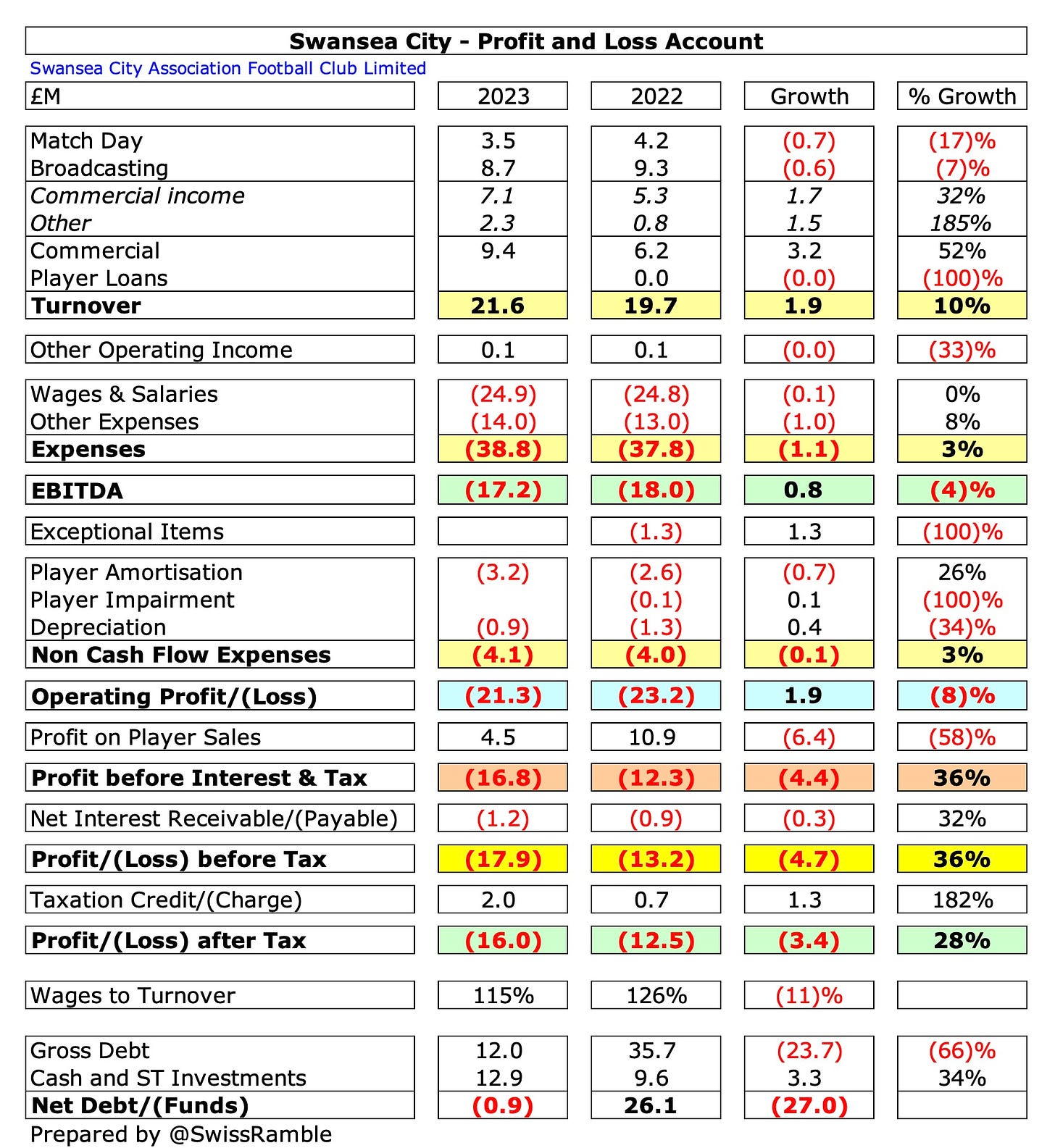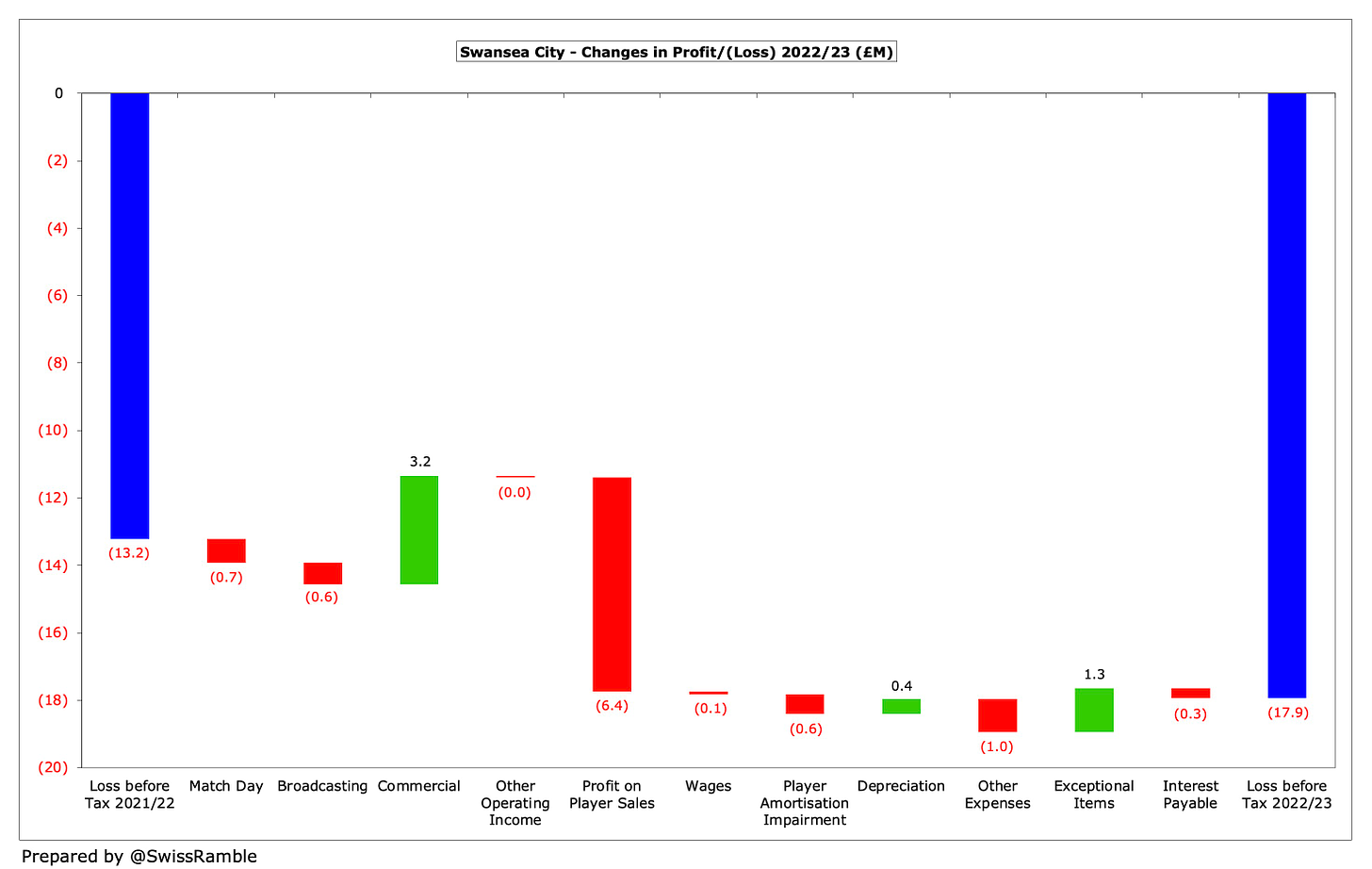Next season will be Swansea City’s seventh in the Championship after their relegation from the Premier League in 2018, leaving many fans wondering whether they have a decent chance of getting back to the top flight.
Their concerns would have increased after falling from 10th to 14th last year, when the Swans changed head coach, as Luke Williams replaced Michael Duff in January (after a six week hiatus).
Chairman Andy Coleman did not pull his punches, “The 2023/24 season has been a challenging one”, though he told the supporters, “We have been working diligently to put the building blocks in place to turn around the footballing and financial performance of Swansea City.”
However, he added, “Much work remains to be done. The Championship is a very unforgiving environment, and we hold no illusions about how difficult it is to succeed on the pitch and off it.”
Ownership
Swansea have been owned by an American consortium since July 2016, when Jason Levien and Stephen Kaplan bought a controlling interest in the club. They were joined in August 2020 by Jake Silverstein.
Coleman, an investor in MLS team DC United (where Levien is also involved), was appointed Swansea’s chairman, having acquired “a significant shareholding” and taking over day-to-day responsibility for the running of the club, leading to the departure of chief executive Julian Winter.
Confusingly, the club’s 2022/23 accounts noted that Coleman was appointed as chairman in May 2023, but the man himself referenced August, as he emphasised that these financial results were before his time:
“These accounts represent the financial year prior to my appointment as chairman and much of the budget had already been set for the 2023/24 financial year before my arrival in Swansea in August 2023. ”
Only last month, there was another change to the ownership, when the club announced that Nigel Morris, a British businessman (with Welsh heritage), had made an investment into the club and joined the board of directors.
Following this investment, the largest shareholders are now:
Swansea LLC (Coleman, Kaplan, Levien and Silverstein) – 74.95%
Nigel Morris – 12.59%
Swansea City Supporters Trust – 9.42%
As a result of regular injections of capital by Swansea LLC and the conversion of some debt into equity, the Supporters Trust stake has been diluted, though it does include a protected 5% ownership position.
Financial Position
Coleman seems reasonably optimistic about the club’s finances, “As I look forward to the 2024/25 season and financial year, I am encouraged by the work being done to expand revenue, increase profit, and strengthen the business model of Swansea City.”
These are fine words, but given the changes in shareholders and indeed the club’s need for regular funding from the owners, I thought that it might be interesting to take a look at Swansea City’s financial position, using the last available accounts from 2022/23.
This was the last season under the guidance of Russell Martin, who departed for Southampton, where his progressive style helped guide the Saints back to the Premier League after defeating Leeds United in the play-offs.
Profit/(Loss) 2022/23
Swansea’s pre-tax loss widened from £13.2m to £17.9m, despite revenue rising £1.9m (10%) from £19.7m to £21.6m, mainly because profit from player sales fell £6.4m from £10.9m to £4.5m. There was hardly any change in operating expenses of £42.9m, though net interest payable rose £0.3m to £1.2m.
The loss after tax was smaller at £16.0m after taking into consideration tax credits.
The main reason for Swansea’s revenue increase was commercial, which rose £3.2m (52%) from £6.2m to £9.4m, which was enough to offset reductions in both match day, which dropped £0.7m (17%) from £4.2m to £3.5m, and broadcasting, down £0.6m (7%) from £9.3m to £8.7m.
The wage bill very slightly increased by £0.1m from £24.8m to £24.9m (excluding the previous season’s £1.3m provision for onerous contracts), while player amortisation rose £0.7m (26%) to £3.2m.
Depreciation decreased by a third, falling from £1.3m to £0.9m, but other expenses rose £1.0m (8%) from £13.0m to £14.0m.
Swansea’s large loss is clearly not great news, as the club itself admitted, “The directors acknowledge the difficult financial and operational conditions the company, along with other Championship football clubs, are experiencing.”
This view was echoed by the Supporters Trust, “We are acutely aware that the results we are seeing today are all too commonplace amongst our Championship rivals, where the majority are also seeing mounting year on year losses.”
Keep reading with a 7-day free trial
Subscribe to The Swiss Ramble to keep reading this post and get 7 days of free access to the full post archives.






